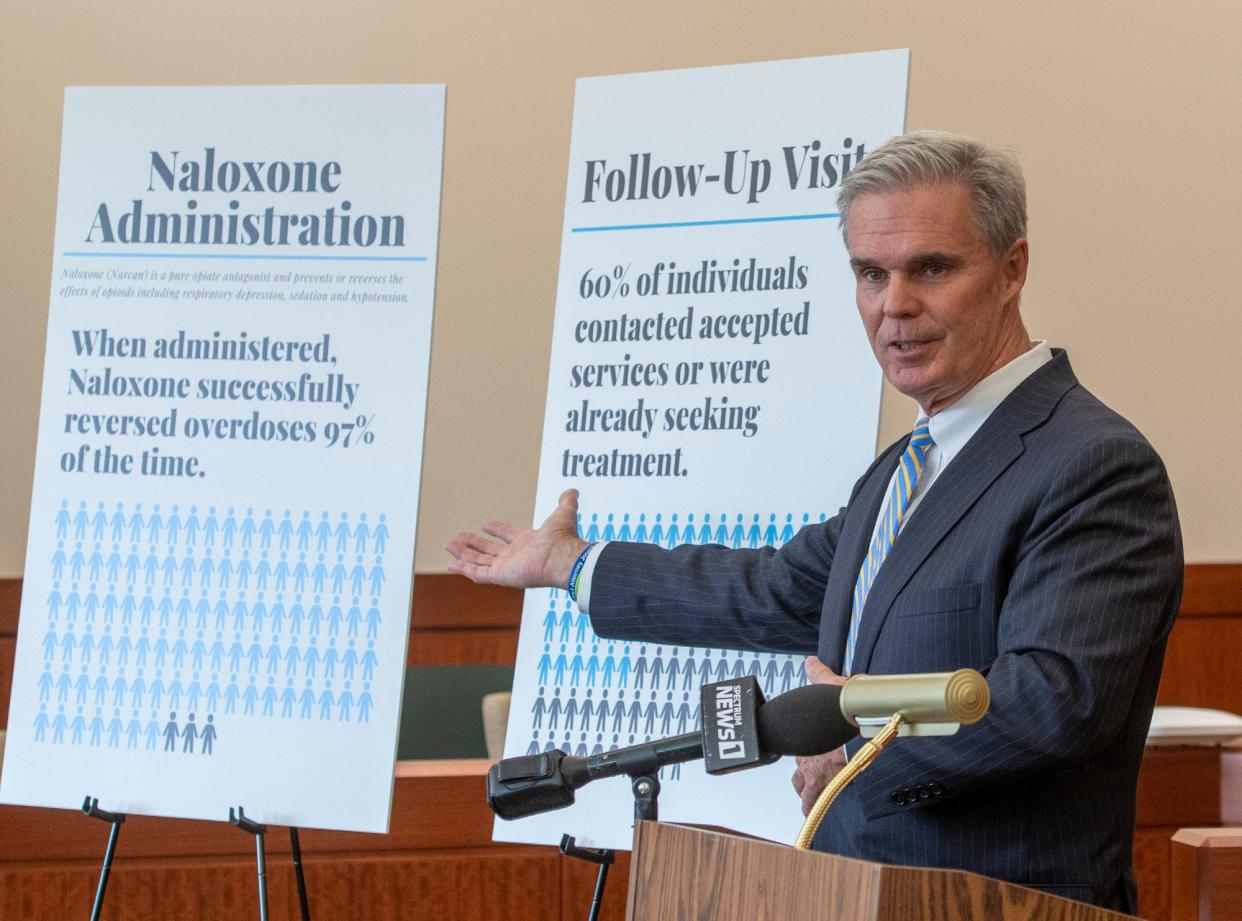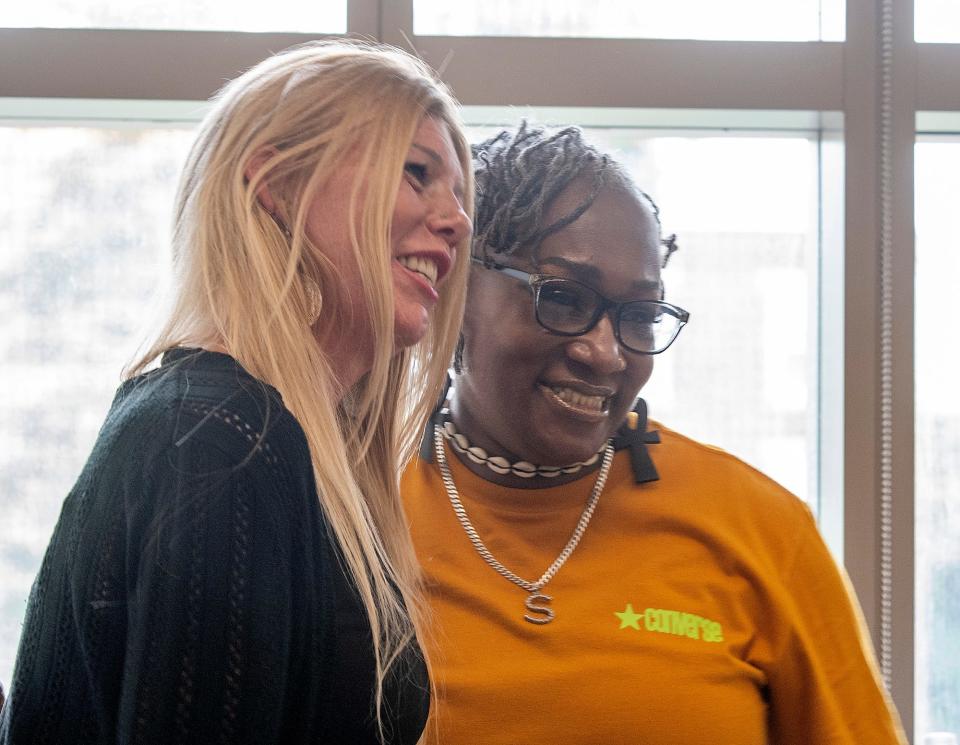Worcester County D.A. using federal money to pair addiction recovery coaches with police

WORCESTER — A new program that law enforcement officials said will provide important interventions in the fight against the opioid crisis will be supported with $1.2 million in federal funding.
Law enforcement officials and representatives from several recovery organizations announced that Worcester County will use a $1.2 million Federal Bureau of Justice grant to add recovery coaches to the county's ongoing opioid response program. Worcester County District Attorney Joseph D. Early Jr. said this new investment comes after more than 100,000 people last year died from opioid-related deaths in the country.
"If it were anything else but opioids, I'd suggest to you that, you know, we'd be calling it a pandemic," Early said. "And not enough people are looking at it the way we should be looking at it. And that's a very relapseable, treatable disease of the brain."
All 60 of the county's police departments are part of a program where people who are logged as having survived an overdose receive a knock on the door within 24 to 48 hours from a police officer and a recovery coach asking if they need help, Early said.
Last year, Worcester County officials attempted followup visits on 622 overdose incidents, Early said, and the COVID-19 pandemic has made the task more challenging as responders had to brace for potential exposure to COVID. The grant funding will help place recovery coaches with police departments that did not previously have the resources to do such outreach, he added.
Early said the program has created six recovery coaches to work throughout the county.
Worcester Police Chief Steven M. Sargent said he has personally felt the impact of addiction on friends and family.

"I've seen the devastating effects firsthand, I don't mind admitting it," Sargent said. "It's important for me to acknowledge it because too many of us are burying loved ones, neighbors and friends and too few are seeking treatment."
Police are on the forefront of the opioid crisis, so they need the tools to respond to it, Fitchburg Police Chief Ernest Martineau said.
"Many people ask, 'Why is law enforcement playing such an extensive role in this opiate crisis? This is a health issue. This is so many things,'" Martineau said. "Law enforcement has a front row seat to what's going on out there."
The state Department of Public Health is making a stronger version of the opioid overdose antidote naloxone available to combat the fentanyl that officers are seeing on the streets, Martineau said.
The town of Uxbridge and the Blackstone Valley opioid task force is also unrolling a program where people in the area can receive free scholarships to become recovery coaches, Uxbridge Police Chief Marc Montminy said.
Rebecca Zwicker, founder of Community Program for Addiction Recovery and a person in long-term recovery, said stigma exists on both ends of police intervention with an opioid user and her organization tries to bridge the gaps.
"There's stigma with people who are actively using, with the police and the criminal justice system and there's stigma from the other side as well," Zwicker said. "We're there to remove that as well."
Sonia Thomas, a recovery coach with Community Program for Addiction Recovery, said recovery coaches have to physically look in high-risk areas like homes, homeless encampments, shelters and soup kitchens. Their goal is to show compassion to individuals and make a connection, Thomas added.
Matt Gear, a recovery coach from southern Worcester County, said that addiction can manifest itself differently in rural areas than it does in Worcester. Rather than seeing people experience overdoses on the street or in encampments, Gear said it is more likely that the drug use occurs behind close doors.
This article originally appeared on Telegram & Gazette: Worcester County D.A. Joseph D. Early Jr. using federal money to pair addiction recovery coaches with police

